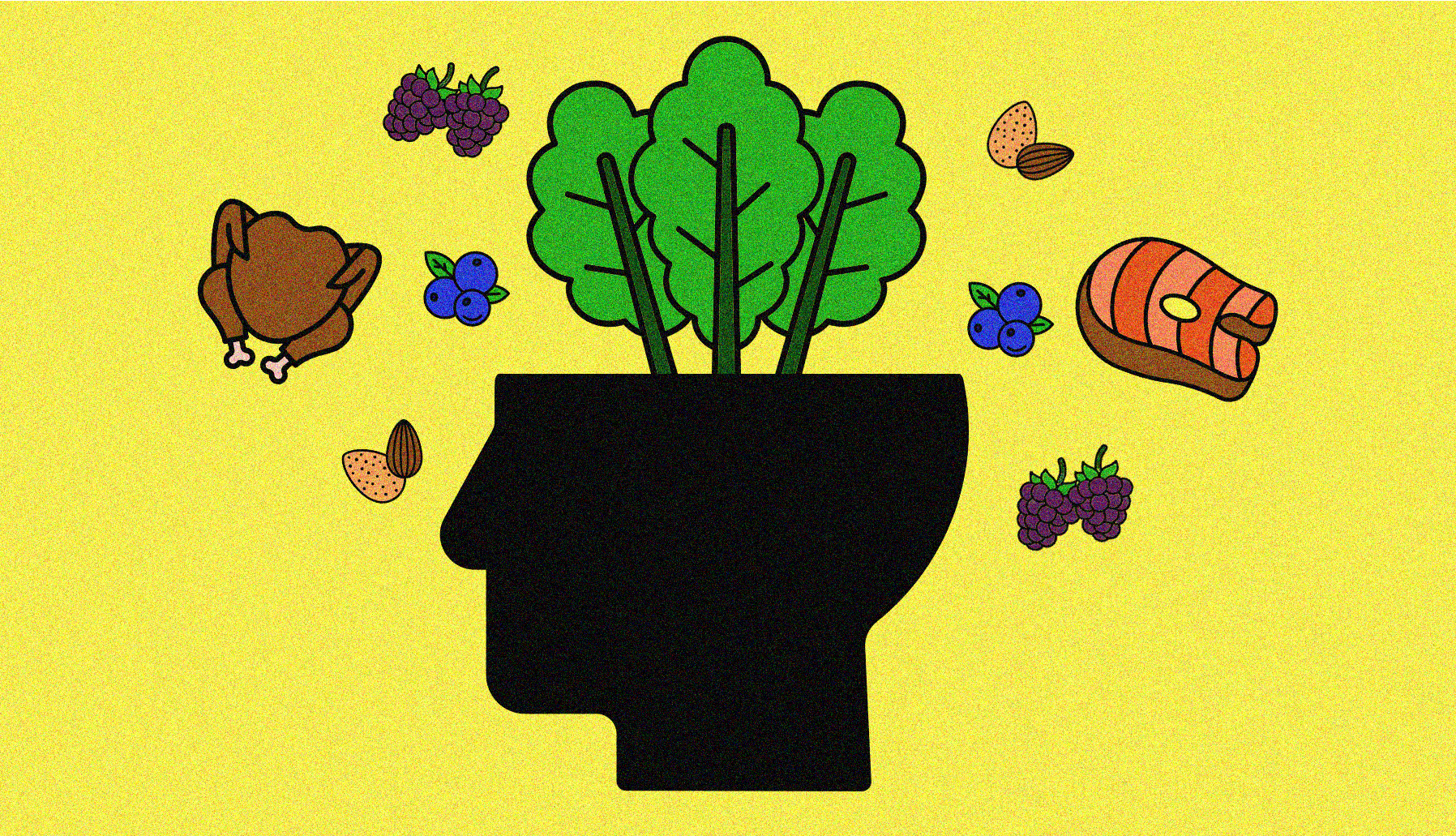AARP Hearing Center


In 2004, a team of researchers at Rush University Medical Center enlisted a group of older adults who were participating in the ongoing Rush Memory and Aging Project (MAP) for a spin-off study. MAP began in 1997 with the goal of pinpointing the factors associated with memory loss in older adults, with an emphasis on Alzheimer’s disease, the most common cause of dementia. Researchers now wanted to zero in on diet; specifically, the effects of certain foods and nutrients as a preventive measure against Alzheimer’s.
Using past research, they developed a MIND diet score partially based on the Mediterranean and DASH (dietary approaches to stop hypertension) diets, both of which have been shown to benefit brain health. For nine years, participants agreed to keep track of what they ate and then fill out a dietary questionnaire at an annual cognitive assessment. At the end of that period, researchers found that participants with the highest MIND diet scores had a significantly slower rate of cognitive decline compared with those who had the lowest scores.
Those initial findings, which were reviewed in Alzheimer’s & Dementia: The Journal of the Alzheimer’s Association, provided the basis for the Mediterranean-DASH Intervention for Neurodegenerative Delay (MIND) diet.
Ten years later, research continues to show the cognitive benefits of following the MIND diet. In one study of people ages 45 to 75, published in May 2025 in Current Developments in Nutrition, participants who closely followed the MIND diet were significantly less likely to develop dementia than those who didn’t adhere to the plan.
What foods are allowed on the MIND diet?
What Do You Eat on MIND?
Eat From 9 Food Groups:
- Leafy green vegetables: at least six servings per week
- Other vegetables: at least one serving per day
- Berries: at least two servings per week
- Whole grains: at least three servings per day
- Fish: one serving per week
- Poultry: two servings per week
- Beans: four servings per week
- Nuts: five servings per week
- Extra virgin olive oil: two tablespoons a day
And Avoid These 5 Food Types
- Red meat
- Pastries and sweets
- Cheese
- Butter/margarine
- Fast/fried food
Source: Harvard T.H. Chan School of Public Health
Like the Mediterranean and DASH diets, the MIND eating plan is made up of plant-based foods and limits the intake of foods high in saturated fat. Unlike these diets, though, MIND specifies 10 “brain healthy” food groups to eat — among them, vegetables, berries, olive oil, nuts, whole grains and beans — and five unhealthy foods to limit (red meat, fast fried foods, pastries, cheese and other sweets).
“The MIND diet would be most appealing to those who want to focus on brain health as they age,” Liz Weinandy, an outpatient dietitian and clinical instructor at The Ohio State University Wexner Medical Center. “If you have a family history of Alzheimer’s or dementia, this diet may be especially attractive.”
With MIND, there’s particular emphasis on two superfoods: leafy green vegetables and berries. Greens such as kale, collard greens and spinach are rich in folate, vitamin E, carotenoids and flavonoids — all nutrients that have been related to lower risk of dementia and cognitive decline. That’s why the MIND plan calls for a minimum of six servings per week.
And while all fruit is good for health in general, research shows particular benefits from berries, especially blueberries. A recent review of studies published in Frontiers in Pharmacology suggests regular consumption of berries— the researchers cited blackberries and mulberries, in addition to blueberries—improves memory and slows cognitive decline, thanks to the abundance of anti-inflammatory plant pigments called anthocyanins, as well as total flavonoids. MIND recommends at least two servings of berries a week.

































































More From AARP
7 Salt Substitutes to Try Today
Try these tasty alternatives to lower sodium
Is There a Link Between Sugar and Cancer?
Eating too much added sugar can increase your risk for numerous health problems
25 Processed Foods That Are Surprisingly Healthy
Surprising health benefits of processed foods